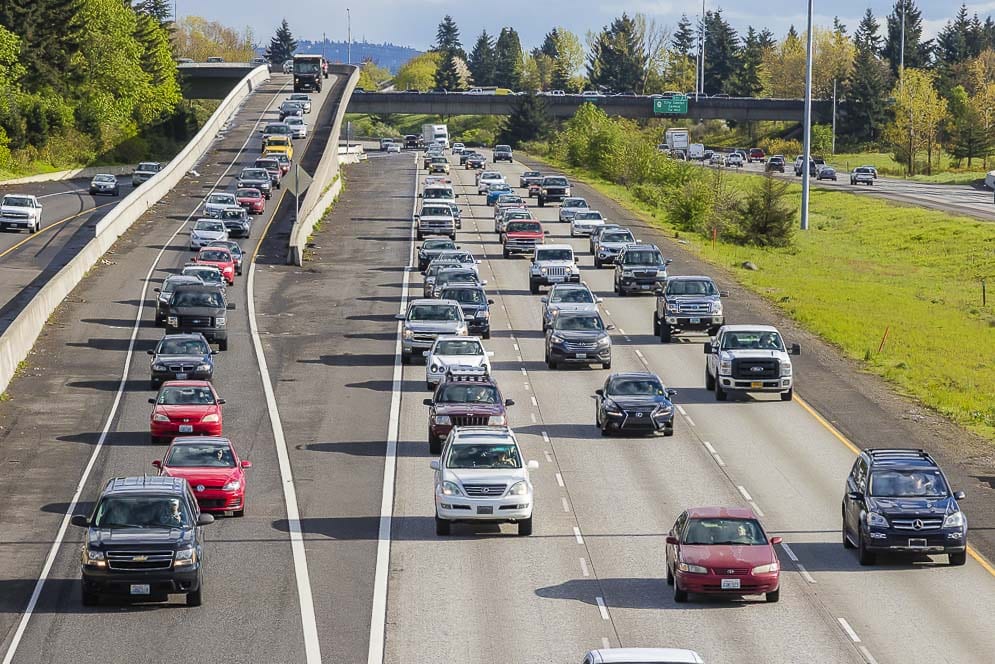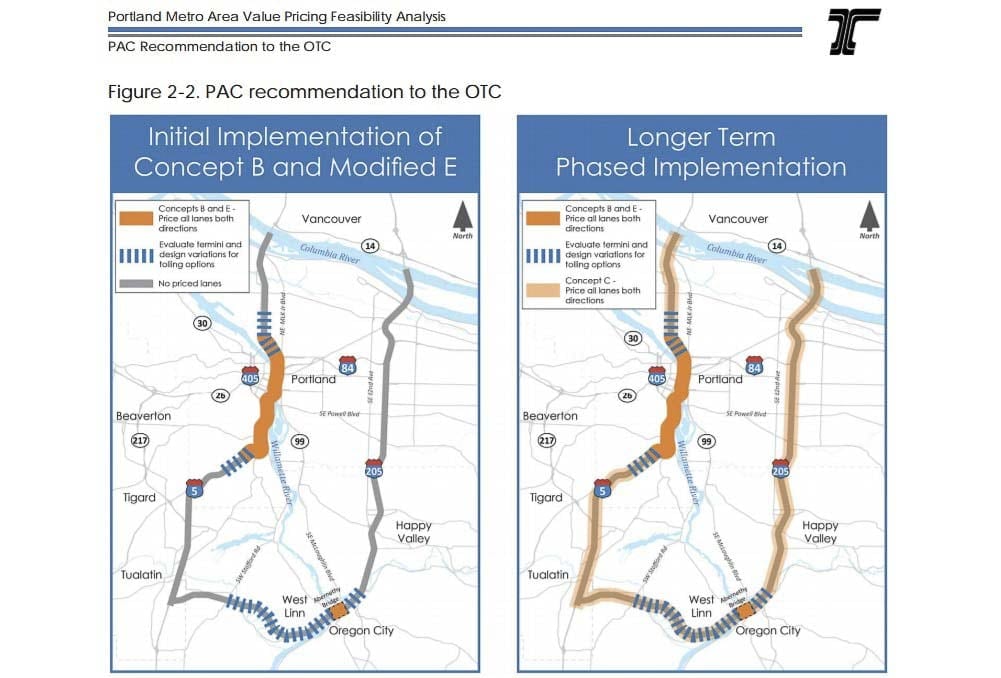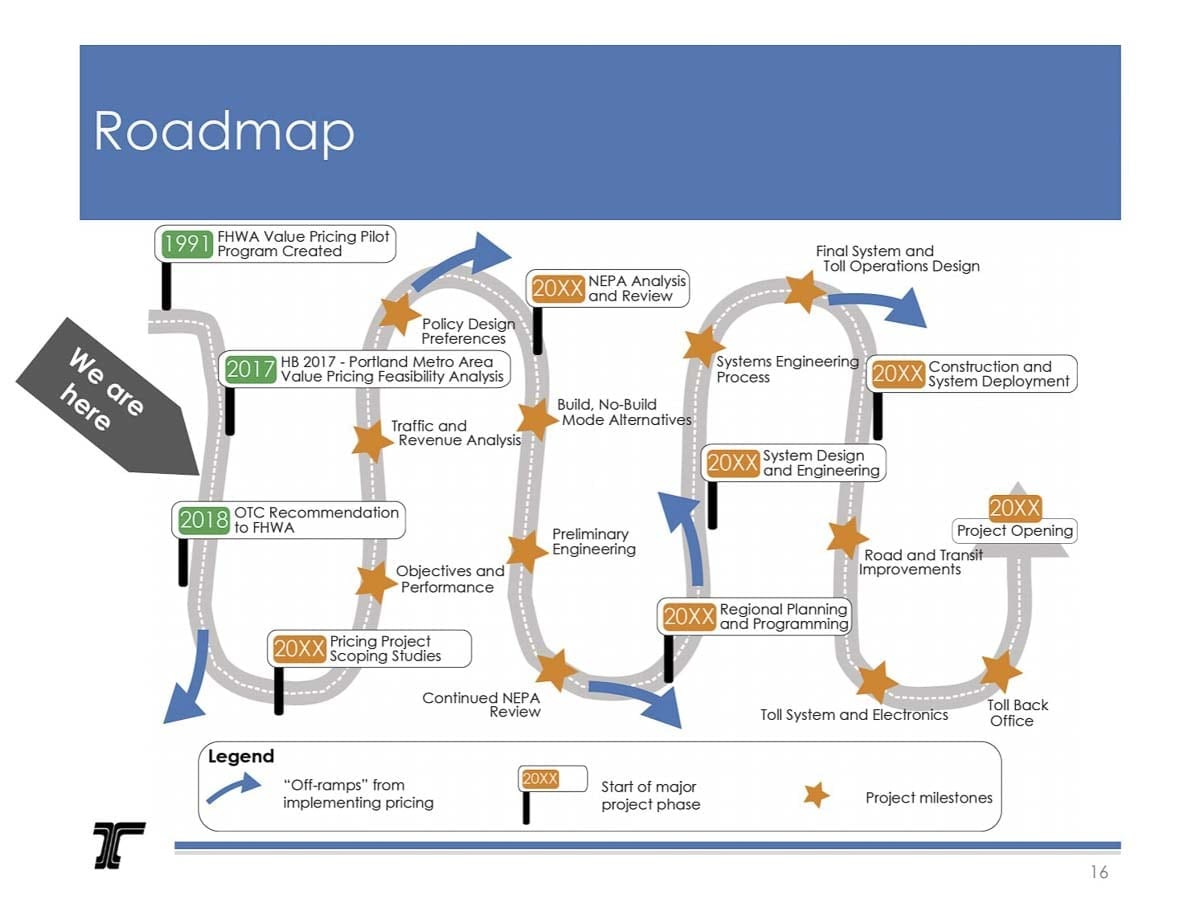Video courtesy OregonDOT
The OTC heard from dozens of people for nearly four hours on Thursday
PORTLAND — The Value Pricing Public Advisory Committee officially completed its mission on Thursday, handing off the questions of how, where, and how much to toll I-5 and I-205 in Portland to the five-member Oregon Transportation Commission.
“We’re not about just imposing a tax for the sake of collecting more money,” said Sean O’Hollaren, a Nike executive who sits on the Oregon Transportation Commission and co-chaired the PAC. “This is, our system needs investment, and we have to make changes. And I think the objective is really to improve the quality of life for people that are in our community.”

Thursday’s meeting was dubbed a listening session, for the commission to hear from elected officials and members of the public. Vancouver Mayor Anne McEnerny-Ogle and 49th District Representative Sharon Wylie spent part of their time pushing for a bi-state transportation commission, to take a broader look at the region’s transportation issues.

“As we look at mitigation,” said McEnerny-Ogle, “we’re hoping that you continue to realize that, again, this is a bi-state implementation, and that all of the projects have equal applicability to Oregon and Washington. Whether it’s C-TRAN and Tri-Met, look at all four counties when you look at those mitigation measures.”
“I feel like this is rather punitive, to be quite frank,” added Representative Paul Harris, a Republican from the 17th District. “I’m not sure that it’s fair … Our gas tax is 16 cents higher than yours.”
While the majority of the nearly four hour meeting was spent simply listening to opinions, the longest exchange of the afternoon happened between Representative Vicki Kraft, also of Clark County’s 17th District, and O’Hollaren, after Kraft repeated Harris’ comment about Washington residents already paying Oregon income tax.
“Because you pay a tax, it doesn’t mean you’re paying for the system that you’re using here,” said O’Hollaren. “When you buy a ticket out of PDX, part of the money for that ticket goes to fund the FAA, runways, air traffic control. It goes to pay for the airport system.”
“You’re correct,” Kraft responded, “currently the income tax that our citizens pay to Oregon is not used for transportation, and my understanding is can not be. So first of all, I would actually suggest that my colleagues should change that. Candidly, I believe that, since infrastructure is such a critical need of your commuters, our commuters, across the states, we probably need to prioritize transportation dollars at a higher level.”
Kraft said it feels like this idea of congestion pricing isn’t as much about raising money for infrastructure projects, as it is about modifying the behavior of drivers.
“This tolling proposal, in particular, really forces someone to look at either moving to transit, or going earlier or later, and they already are,” Kraft said. “So it’s getting unreasonable at this point, and they’d like to see their families … I’d heard earlier, as we were starting the meeting, one of the commissioners mention that this needs to manage traffic demand. Traffic demand is the key. Our commuters, ours and yours, are driving cars. That is their demand. Otherwise they would already be taking transit. Tri-Met would be filled to the gills and C-TRAN would too. That isn’t the case.”
Camas resident John Ley, a strong opponent of the tolling idea, expounded on that point during citizen comment period, pointing out that 95 percent of people drive cars, while ODOT and the city of Portland have spent billions in the past decade expanding Tri-Met, including the $1.5 Billion Tilikum Crossing bridge, which is off limits to cars.

Ley also mentioned that tolling systems elsewhere in the country see up to half of revenues going to the company collecting the tolls. “No business person would ever accept a credit card for payment that cost them 35 or 50 percent of revenues,” he said. “If you want to be efficient with the people’s money, you should reject tolls as a source of revenue.”
Ley instead advocates raising the gas tax in order to generate revenue for adding capacity to local highways.
While there was plenty of Southwest Washington representation on hand, the primary citizen concerns seemed to come from North Portland and the West Linn area. Those neighborhoods say they’re already seeing massive increases in traffic on side streets as drivers try to escape the congestion on I-5 and I-205, and that little has been said at this point what kinds of mitigation strategies the state might be able to employ to alleviate that as tolls go into effect.

It’s unclear exactly which direction OTC could take from here. The recommendation made by ODOT and their consultants was to put a toll on I-5 through downtown Portland, and I-205 at the Abernathy Bridge, with eventual expansion to all of I-5 and I-205. The commissioners have indicated they would also like to see about further study into tolls on other Portland-area freeways, though it’s unlikely any such recommendations would make it into the final proposal sent to the Federal Highway Administration by the end of the year.
Portland city council this week lent their support to immediately implementing tolls on all of I-5 and I-205, from the Columbia River to the I-5/I-205 split, however it doesn’t appear at this point as if the Transportation Commission has the will to commit to that.
OTC is expected to return in mid-August with further direction for ODOT on how to write up their proposal to the Federal government.




